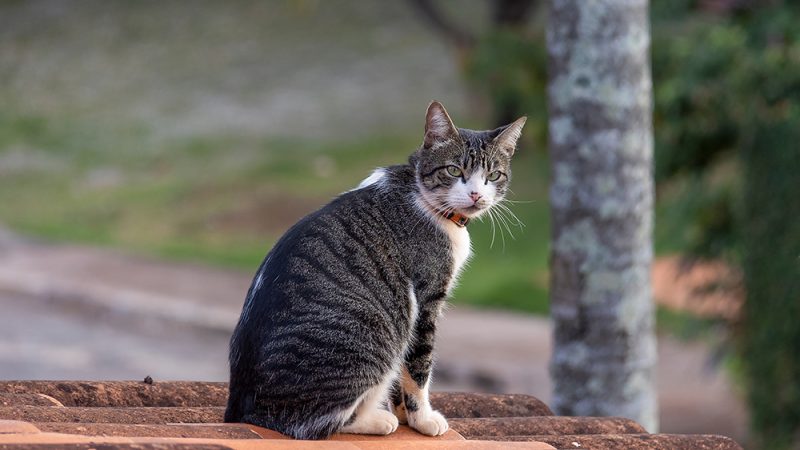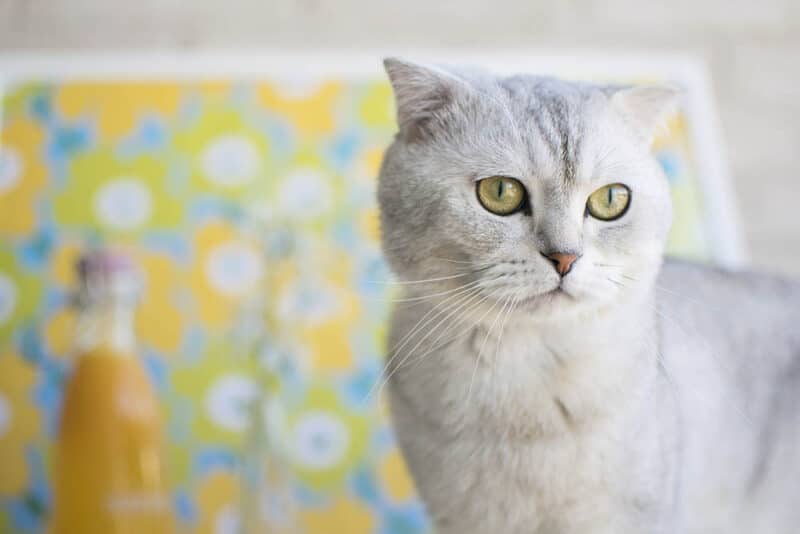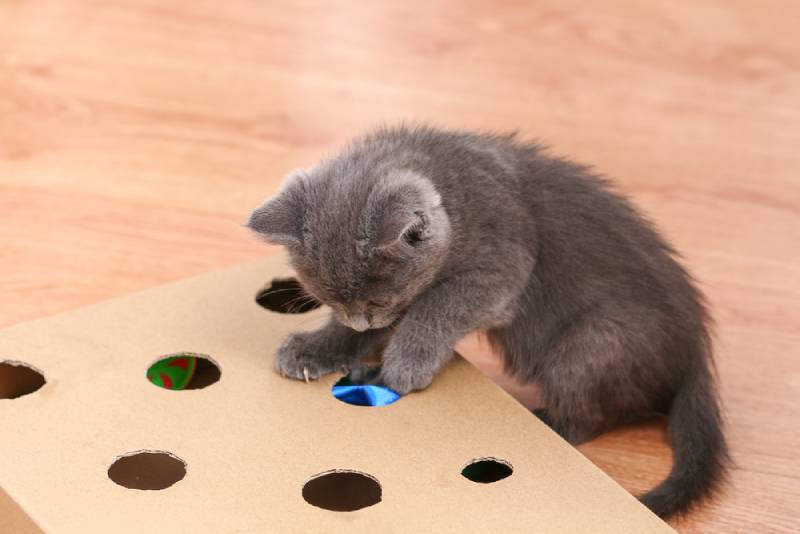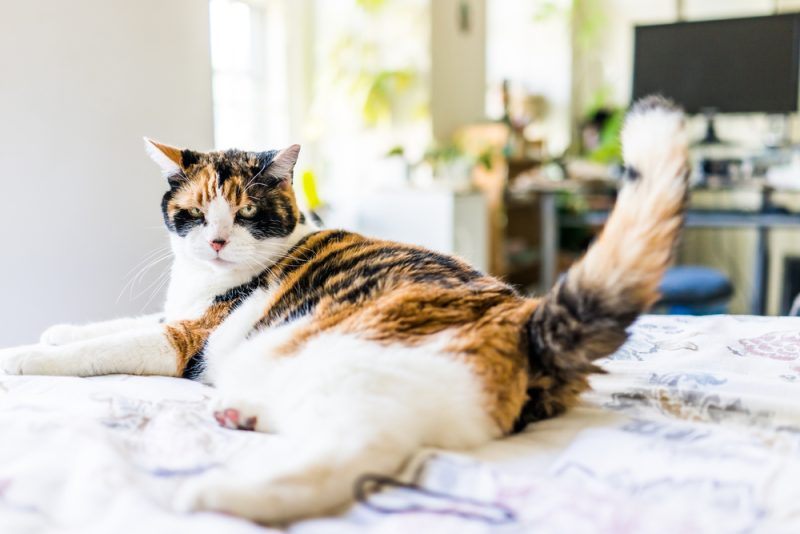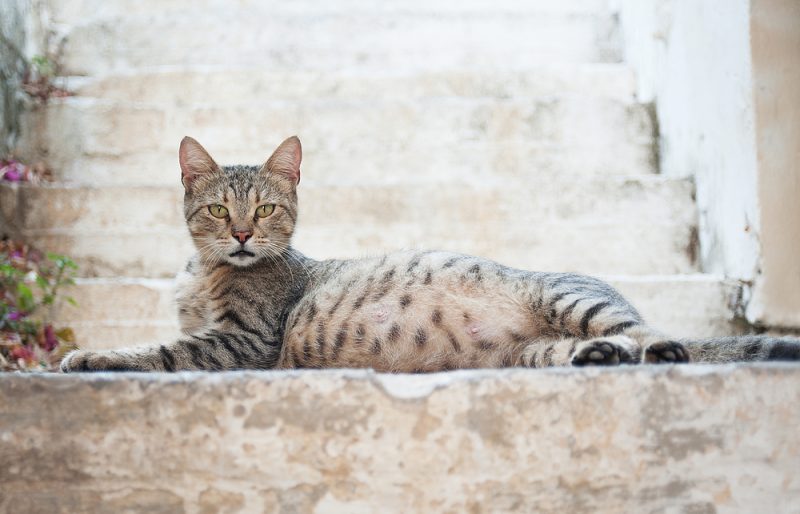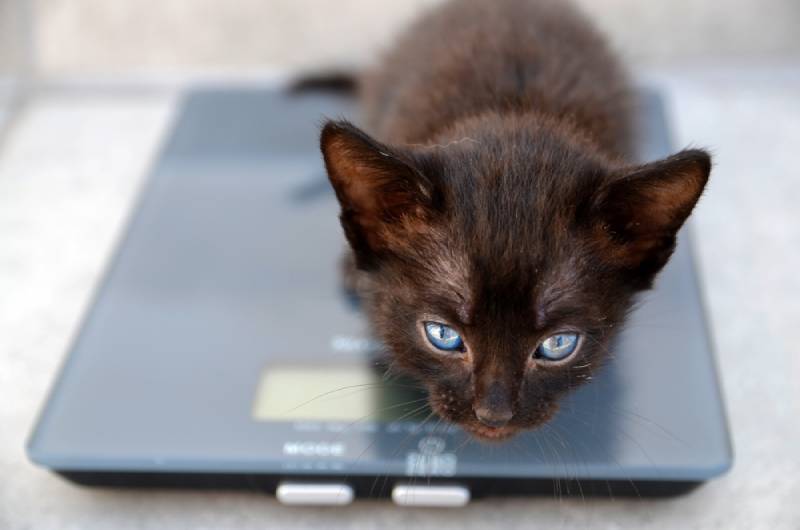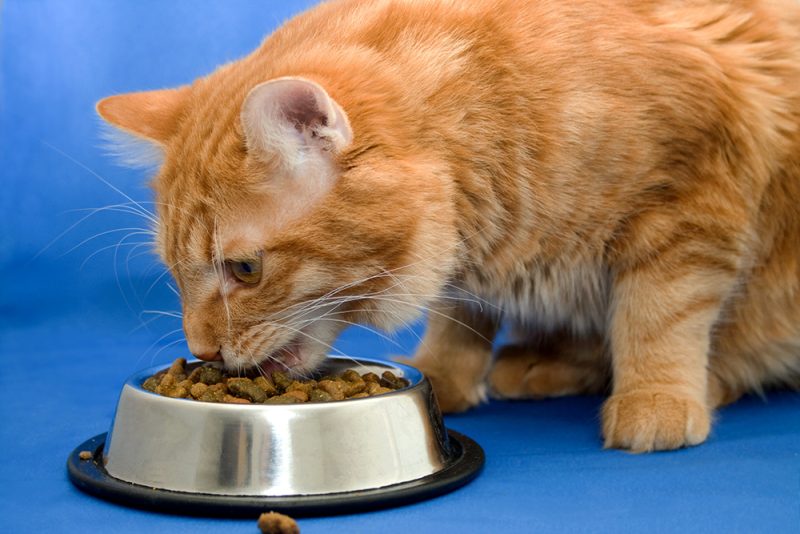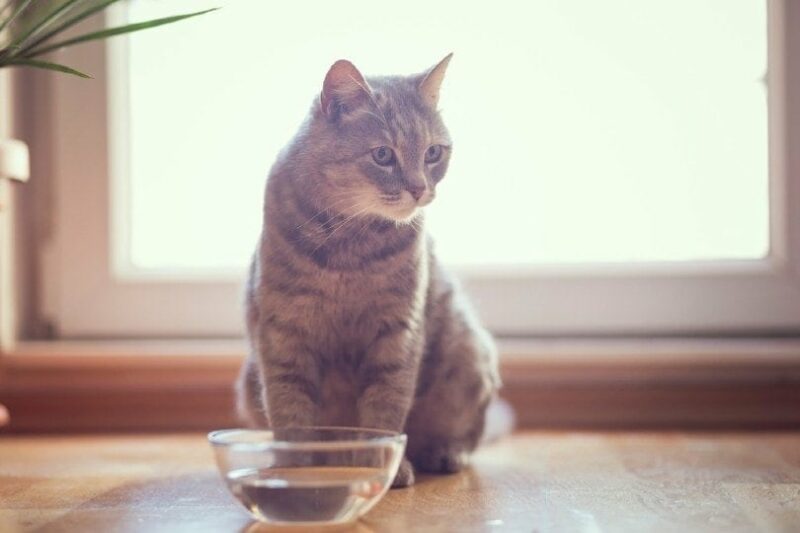In this article
Cats have a way of turning a clumsy fall into a graceful landing by hitting the ground on all fours with their dignity well intact. While it’s true that they have a natural ability to position themselves during a fall or jump so they can make a perfect landing, it doesn’t always happen that way.
High-rise syndrome is a term used in veterinary medicine to describe the injuries sustained by a cat when they fall from steep heights, typically two stories or higher. Access to balconies, open windows, or anything that puts your cat at risk of falling like this is not considered safe.
In this article, we will go in-depth on this subject to learn more about a cat’s reputation for landing on its feet, what kind of risks are associated with falls, and how to keep your beloved kitty as safe as possible.

High-Rise Syndrome
The term high-rise syndrome was first coined in New York City during the 1980s.1 An animal medical center treated more than 100 cats over a 5-month period that had fallen out of high rises. These cats seen at the clinic paid a heavy price for access to these kinds of heights. They were brought in with varying degrees of trauma, many with very significant injuries.
Cases of high-rise syndrome often surge during months of nice weather when people are opening up their windows and doors to catch some nice fresh air. The problem is that cats also enjoy getting some fresh air and will often sit on windowsills or hang out on the balcony to get a glimpse of the world around them or even just spend some time under the warmth of the sun.
Open windows, balconies, terraces, and fire escapes all pose a significant risk for high-rise syndrome. Whether they accidentally fall or purposely pounce at a bird or an insect, a fall from this height puts them at severe risk of injury or death.
Why Are Cats Known for Landing on Their Feet?
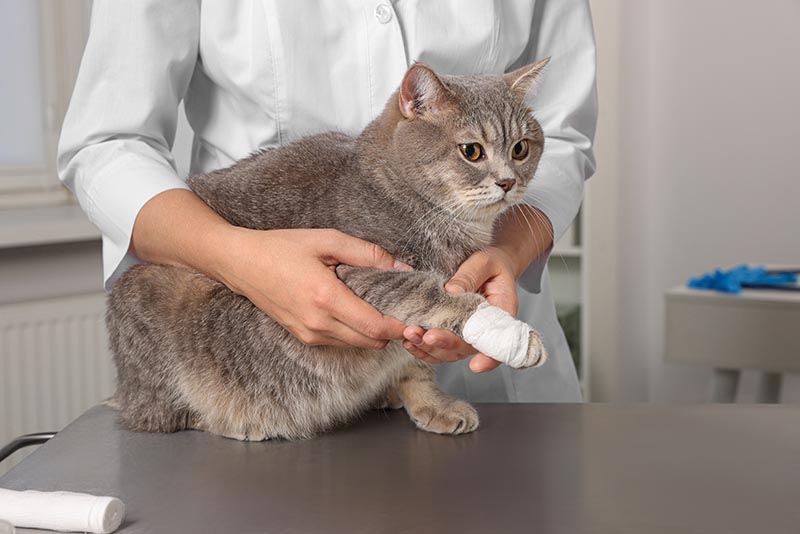
That age-old saying “cats always land on their feet” may have some reasoning behind it, but it can also mislead people into believing this is always the case. Their built-in reflexes and natural flexibility give them a significant advantage over other mammals.
Righting Reflex
Cats have what is called a “righting reflex,” which is an automatic bodily response that corrects the orientation of the body when it is in an abnormal position so that it can safely land on its feet. This is possible because of the vestibular system in the inner ear that controls both hearing and balance. The righting reflex has been observed in a kitten as young as 3 weeks old.
Flexibility
Cats are very flexible because they have unique skeletal structures. They may be domesticated house pets now but these hardy little creatures had to first adapt to a life in the wild where they climbed trees and other heights regularly. Cats lack a collarbone, and the spine is significantly more flexible than most other animals, which contributes to how agile and graceful a cat’s movements are.
It also allows them to twist and turn their bodies in mid-air during a fall, allowing them to land on their feet with dignity when they are lucky.
How Far Can Cats Fall?
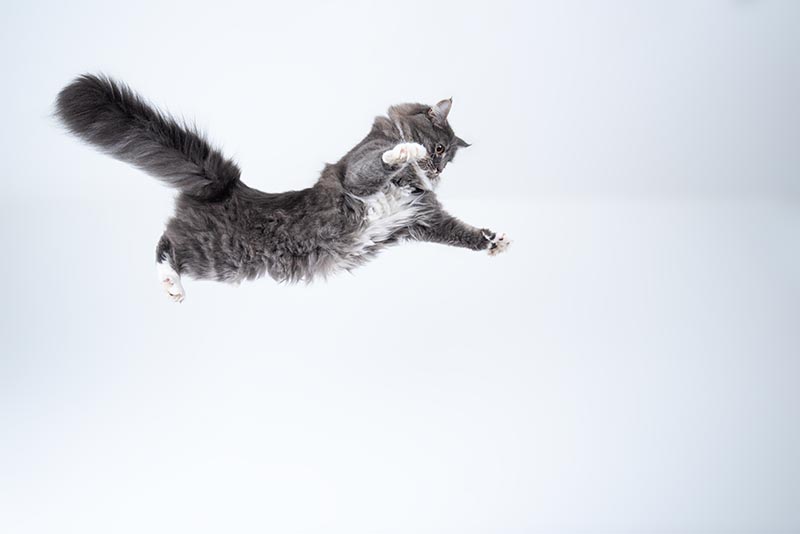
Cats may be famously known for surviving falls from impressive heights, but there is no exact distance a cat can fall without being injured because there are so many factors at play.
A study related to this topic was completed in 1987 and was published in the Journal of the American Veterinary Medical Association. It included 132 cats that had fallen an average of 5.5 stories and survived. One-third of those cats would have died from the injuries sustained from those falls if emergency veterinary care had not been available.
The research also revealed that the injuries at falls less than seven stories were worse than those seven stories and above. It is believed this happened because it allowed the cats to reach terminal velocity and allowed them to properly brace for impact.
Though exceedingly rare, cats have been recorded falling over 30 stories and surviving. Keep in mind that this type of fall will typically result in death, but it does go to show just how impressive their built-in adaptations can be. While these studies may have revealed some very interesting information, cats should always be prevented from accessing dangerous heights because the threat is very real.
Potential Risk Factors for Falls
Age
Cats generally won’t develop their reflexes until they are several weeks of age. Newborn kittens won’t move around much but should still never be exposed to risky heights. Keep kittens nestled safely in a comfortable, secure, and quiet area with their mother. Senior cats may be at a higher risk of injury from falls just as seen in humans.
Age puts wear and tear on the body and seniors may have arthritis, weaker bones, and aren’t as spritely or agile.
Weight
Overweight cats may be at greater risk of falling if their excess weight limits their flexibility and agility. It also results in more impact behind the fall. Owners should strive to keep their cats at a healthy weight to avoid any weight-related health concerns and other associated risks.
Environment
The surroundings related to a fall can largely impact the result. The type of surface, height, and nearby objects will all play a role. Keeping your cat securely indoors is the best way to ensure their overall safety.
Dangers of Falling
The dangers associated with falling from a significant height are very serious. If your cat were to fall, they need to be seen by a veterinarian immediately.
If you need to speak with a vet but can't get to one, head over to PangoVet. It's an online service where you can talk to a vet online and get the advice you need for your pet — all at an affordable price!

They will be given a full physical exam and any necessary diagnostic testing including X-rays, MRI, bloodwork, and any other testing that may be needed. The most common injuries related to a serious fall include:
- Broken teeth or fractured palate
- Shattered jaw
- Ruptured bladder
- Broken limbs
- Fractured spine
- Punctured lung(s)
- Permanent disability
- Death
Keeping Your Cat Safe
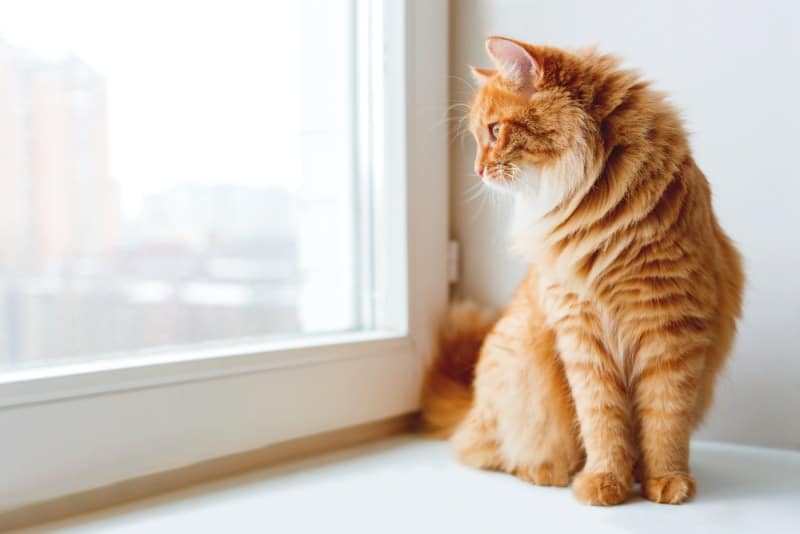
The most important thing you can do as an owner is to implement preventative measures to keep your cat from being at risk of a bad fall. Here are some of the precautions you should take to prevent your cat from falling from windows and balconies:
- You should have secure, properly installed window or door screens in every area of your home. You should check them frequently to make sure they remain sturdy and have no holes. Cats will often lay on the windowsill and lean up against the screens and if they are loose, they could fall.
- If you have any windows or doors that lack screens, do not ever open that window. In situations like this, windows on the first floor would put your cat at risk of escaping and being lost, while any windows on the second floor or above will put them at risk of falling. Also, make sure everyone in the house is aware that these windows should never be opened.
- Keep all doors and windows securely closed. Cats have a way of fitting themselves through tight spaces, so even the slightest opening could put them at risk. Remember that childproofing methods won’t always work. For example, it’s typically easy for cats to slip right through a window guard.
- Keep all of your doors and windows closed and locked when you are away from the home.
- Have your cat spayed or neutered so they won’t have the instinct to go searching for a mate. Spaying and neutering are very beneficial in many ways, including minimizing the desire to roam and the associated escape risks.
- Always make sure your cat is under constant supervision if on a balcony or terrace. Never let them in these areas by themselves and always bring them inside with you, even if you only need to walk away for a moment.
- Keep in mind that most borders on balconies and terraces have bars or slats with larger gaps that could easily result in a fall. Consider using some sort of deck netting or mesh for these areas if you allow supervised access to these areas.
- Make sure any patio furniture is placed far from the railing of your balcony or terrace to prevent your cat from climbing up on them and putting them at risk of falling off.
- Keep your cat indoors. There are many reasons why you should never allow your cat to free roam outdoors and one of those reasons is that it puts them at a much higher risk of injury or premature death, including those associated with falls.

Conclusion
While it’s true that cats are naturally adapted to handle falls from greater heights when compared to other species, they do not always land on their feet. They may have natural righting reflexes and incredible flexibility that gives them that reputation, but there is always a significant risk of high-rise syndrome if they fall from a significant height.
Since falling can result in very serious injury or death, cat owners should consider keeping their cats indoors at all times and apply the necessary preventative measures to reduce the risk of an accident.
See also:
- Manx Syndrome in Cats: Our Vet Explains the Causes, Signs & Treatment
- Why Is My Cat So Clumsy? Cerebellar Hypoplasia Explained (Vet Answer)
Featured Image Credit: Fernando Calmon, Shutterstock
